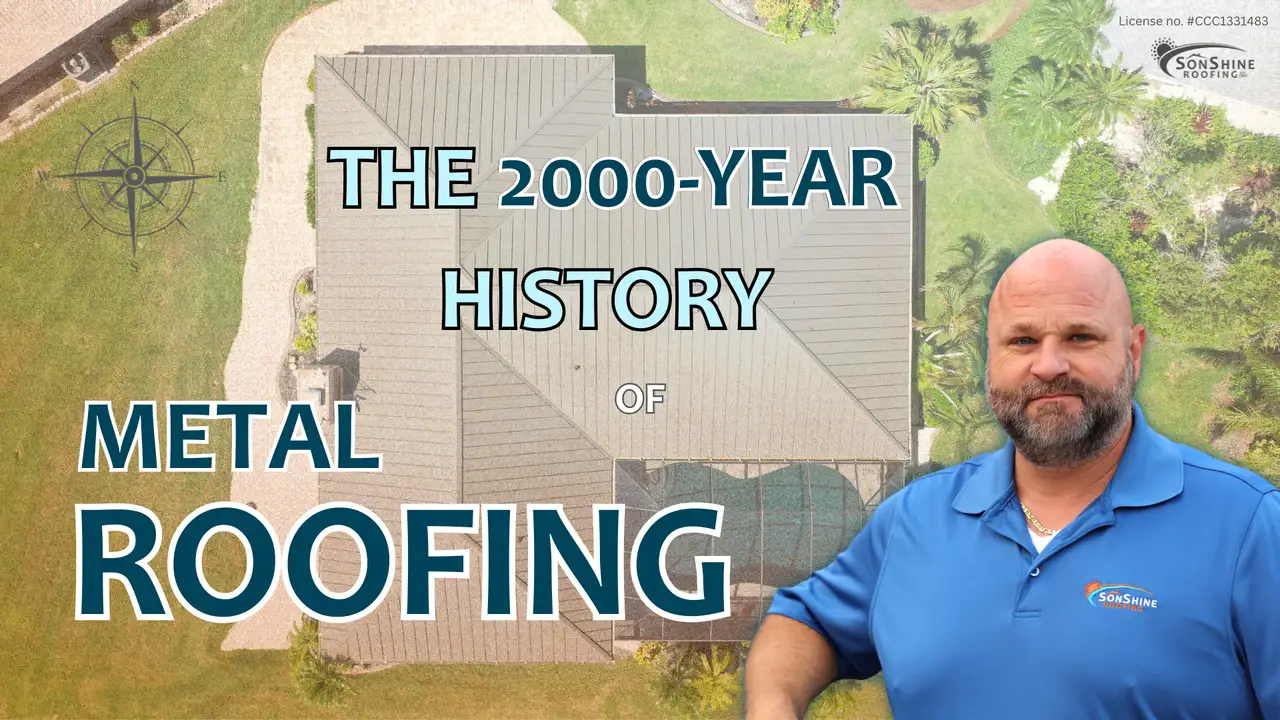If you live in Sarasota or anywhere along Florida’s Gulf Coast, you know hurricane season isn’t something to take lightly. Between high winds, torrential rain, and flying debris, your roof takes the brunt of every storm. At SonShine Roofing, we’ve spent decades helping homeowners across Sarasota, Venice, and North Port prepare for hurricane season and repair storm-damaged roofs after the skies clear.
Your roof isn’t just the top of your home — it’s your first and most important line of defense. With the right preparation, inspections, and reinforcements, you can dramatically reduce your risk of costly damage and ensure your family’s safety.
1. Schedule a Professional Roof Inspection Before Storm Season Starts
Hurricane season in Florida runs from June 1 to November 30. Proactive homeowners begin preparations in early spring. Why act early? Because small roofing issues can quickly turn into major disasters under hurricane-force winds. Our comprehensive Tip Top Roof Checkup is designed to identify and fix weak spots before the storm hits.
- Loose or missing shingles
- Corroded or detached flashing
- Moisture stains or sagging areas in your attic
- Potentially weak decking that may need reinforcement
These issues can often be resolved through targeted roof repairs before a storm arrives.
2. Repair or Replace Roofing Materials Before They Fail
Neglected maintenance is one of the most common reasons roofs fail during a hurricane. If your roof has curling, cracked, or missing shingles, its structural integrity is already compromised.
Depending on your roof’s condition, our Roofing Specialists may recommend:
- Spot repairs for localized damage
- Re-roofing certain sections
- Full roof replacement for aging or compromised systems
We also offer premium hurricane-ready materials such as:
- Impact-resistant shingles
- Metal roofing systems rated for high wind zones
- Architectural asphalt shingles with superior wind uplift resistance
These options may also qualify for discounts under certain Florida insurance policies.
3. Reinforce Your Roof with Bracing and Hurricane Clips
A strong roof depends on more than shingles—it’s about how it’s tied to your home. Hurricane clips are metal connectors that attach roof trusses or rafters directly to your home’s walls for added strength. Bracing adds extra resistance against uplift during high winds.
We follow Florida Building Code standards and offer upgrades that reinforce your home’s entire roofing system.
4. Upgrade to a Waterproof Underlayment System
Shingles are the first line of defense, but underlayment is the critical backup. A high-quality, waterproof underlayment ensures that even if shingles blow off, your home stays dry underneath.
During your inspection, we’ll assess your current setup and recommend modern synthetic or peel-and-stick underlayments built for hurricane conditions.
5. Review Your Homeowners Insurance Policy
Even the best roof may be damaged by an extreme storm. Be sure your policy provides sufficient coverage. Review it with a Florida-specific agent to confirm:
- Coverage for wind and hurricane damage
- Roof replacement eligibility
- Reasonable deductibles for hurricane-related claims
For more information, visit Florida’s Department of Financial Services.
Frequently Asked Hurricane Roofing Questions
How often should I inspect my roof?
At least once a year—preferably before hurricane season—and after any major storm. You can learn more in our guide: How to Make Your Roof Last.
What roofing materials offer the best hurricane protection?
We recommend metal roofs or Class 4 impact-resistant asphalt shingles designed to withstand Florida storms.
Can you help with emergency roofing after a hurricane?
Yes. We offer emergency roof repairs and damage assessments for homes in Sarasota, Bradenton, Venice, North Port, and surrounding areas. However, keep in mind that if roads are impassable or power goes out for a significant portion of our employees, we cannot provide service.
Be Proactive—Not Reactive
Each year, storms become more severe across Florida. Protect your home and family with expert service and preparation from SonShine Roofing.
📅 Schedule Your Hurricane Roof Inspection Today
📞 Call us at (941) 866-4320
🌐 Visit SonShineRoofing.com
📍 Proudly serving Sarasota, Venice, Siesta Key, and surrounding areas
We believe a well-prepared roof can protect your home—and your family. Don’t wait until the storm is knocking—contact the roofing experts who care about your safety and your future.













